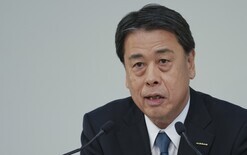T-Tech 2019: Consequences of future

The Ministry of Transport’s framework for the future is based on creating a transport system that improves wellbeing and liveability.
That’s the message of Dr Simon Kingham, recently appointed as chief science adviser to the ministry. He examined common transport technology and tech-enabled solutions at this month’s T-Tech 2019 summit.
Organised by Intelligent Transport Systems NZ, the event examined new transport technologies and emerging business models – and how they could impact government, transport planning, urban design and communities.
“At the Ministry of Transport, our framework is based on creating a system that improves well-being and liveability,” said the Canterbury University-based professor of geography.
“It’s based on five distinct areas. These are health and safety, protecting New Zealanders and making active travel an attractive and viable option, environmental sustainability, resilience and security, economic prosperity, and inclusive access.”
Currently, the biggest transport-related challenges facing Kiwis, said Kingham, were safety, climate change, congestion and social equity. “Congestion is increasingly becoming a bigger problem. There’s too much time and resources spent on the issue of urban sprawl.”
In discussing how to incorporate technology and innovation into the land-transport system, Kingham tackled emerging technologies and “how they might help us achieve the outcomes we want as society”.
“Electric vehicles [EVs] have the potential to make a positive impact on our environment as they produce zero to low emissions. However, cheaper fuel means more travel, which could lead to increased congestion and sprawl.”
Another downside to EVs is that cheaper fuel means people may take less active exercise. As for social equity, newer cars are more expensive.
Furthermore, Kiwis are reluctant to keep buying newer, smarter vehicles that produce fewer pollutants than older and more traditional ones, said Kingham.
With mobility as a service (MaaS), there would be less single-use occupancy helping to reduce congestion, sprawl and emissions. Conversely, MaaS might result in a reduction in active travel, such as cycling.
As for on-road safety, autonomous vehicles might lead to a reduced rate of human errors and a newer fleet, and while they would result in more efficient driving the upshot could be more in-vehicle travel as opposed to active travel impacting on the likes of obesity and mental health.
“Do we want a tech-driven future,” asked Kingham. “If we do, we may get some unfortunate consequences. We need to anticipate them.”
All areas of future development in transport need to be related back to “people and things”, he added, such as access to employment, recreation, social and health services, raw materials, products and markets. He said changes relating to transport included safety, climate change, congestion, urban sprawl, health and wellbeing, how our communities work and social equity.
Kingham summed up his final thoughts to delegates in Christchurch. These included fast is not always best, door to door may not always be best because exercise and social interaction are good, there needs to be a vision for how we want our cities and communities to be, and we need to see “technology as our servant, not our master”.





